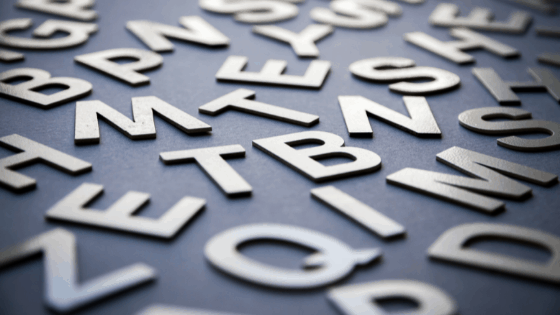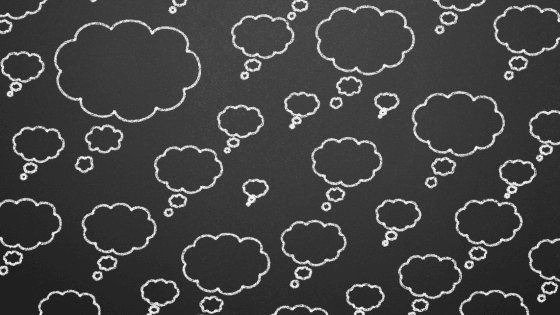Words To Describe Depression – To Articulate Feelings
Depression is hard to describe. It’s a complex emotion that affects people in different ways and manifests itself in various forms.
Common words used to describe depression include sadness, despair, emptiness, hopelessness, fatigue, worthlessness, apathy and isolation.
Strong feelings are normal as part of human experience, however when these feelings become persistent, intense and seem unmanageable it can be a sign of depression, requiring professional help.
This list of words to describe depression are intended to provide insight into the experience of depression, create awareness and enable communication with others. It is important to remember that no single word can capture the full range of emotions associated with depression, and many more words may be used depending on individual experiences.
If you are feeling overwhelmed or lost in these feelings, it is important to seek professional help so that you can understand and manage your mental health. A qualified professional will be able to provide a comprehensive assessment of your emotional and mental wellbeing, as well as help create an appropriate treatment plan.
Words To Describe Depression
Agitation: Feeling restless and unable to relax; experiencing an increased sense of anxiety or irritability.
Anguish: Extreme emotional distress caused by physical or psychological pain.
Anhedonia: Loss of pleasure or interest in activities that were previously enjoyable.
Anxiety: A sense of worry, nervousness, or unease that can be mild or severe and can range from a general sense of dread to panic attacks.
Apathy: Lack of interest, enthusiasm or concern; feeling disconnected and disinterested.
Aversion: Feeling repulsed and/or disgusted by certain people, places, or things.
Avoidance: Intentionally withdrawing from situations or people.
Bleakness: Feeling dark and desolate; without hope or optimism for the future.
Boredom: A lack of interest or stimulation; feeling uninterested and apathetic.
Consuming: An overwhelming sense of distress, despair and helplessness.
Darkness: Feeling a deep, pervasive emptiness or bleakness.
Daunting: Feeling intimidated and overwhelmed by a daunting task or situation.
Defeat: A sense of failure or inadequacy; a feeling that one has been beaten.
Depersonalization: Feeling detached from oneself or disconnected from reality.
Deprived: A feeling of being deprived or denied something important.
Desolation: An overwhelming sense of loneliness, emptiness and despair.
Despair: A deep sadness that can include feelings of hopelessness and despair.
Desperation: A feeling of anguish and desperation; a sense of being desperate for relief.
Despondence: Feeling overwhelmed with a sense of hopelessness, helplessness, and despair.
Disconnection: Feeling disconnected from one’s body, thoughts, and/or emotions.
Disinterest: A lack of enthusiasm, motivation or interest in certain matters.
Disorientation: A sense of confusion or lack of direction regarding what to do next.
Doldrums: A feeling of depression, listlessness and lack of energy.
Down: A state of low energy and/or mood; feeling down or discouraged.
Dullness: A feeling of numbness or emotional emptiness.
Emptiness: Feeling hollow or empty inside; a lack of purpose or meaning in life.
Engulfing: A sense of being overwhelmed; feeling trapped and unable to escape.
Exhaustion: Physical and mental fatigue caused by exertion, stress or illness.
Fatigue: A feeling of weariness or exhaustion due to physical, mental or emotional strain.
Fear: Intense anxiety, apprehension and dread in the face of danger.
Futility: A sense of hopelessness; feeling that one’s efforts are in vain.
Grief: A deep emotional pain caused by loss, bereavement, or misfortune.
Guilt: Feeling responsible for something wrong, causing feelings of shame and remorse.
Helplessness: A feeling of powerlessness in the face of adversity; an inability to act or make a difference.
Hollowness: A feeling of being empty or hollow inside; a lack of meaning or purpose in life.
Hopeless: Having no hope for the future; believing nothing will ever get better or improve.
Hopelessness: Feeling that nothing will ever get better and life is ultimately meaningless.
Humiliation: Feeling embarrassed or ashamed in the presence of others; excessive self-consciousness.
Hypervigilance: Being overly aware of threats and danger in one’s environment.
Indecisiveness: Difficulty making decisions and lack of confidence in one’s ability to choose.
Inertia: A lack of motivation or action; an inability to make decisions or take action.
Irritability: Easily angered, frustrated, or agitated; short-tempered or snappy.
Isolation: Feeling disconnected from others and cut off from the world.
Lack of Motivation: Absence of enthusiasm for activities or tasks; disinterest in work or other activities.
Lethargy: A state of physical and mental exhaustion, making it difficult to take action or be productive.
Loneliness: A feeling of isolation or being cut off from others.
Lost: Feeling isolated, disconnected and without direction in life.
Malaise: A feeling of general discomfort or unease; a vague feeling that something is wrong.
Melancholy: A deep, pervasive sadness; a feeling of being melancholic or blue.
Misery: Intense emotional suffering caused by despair, disappointment and/or unhappiness.
Nihilism: A belief that nothing has any real value or meaning.
Nothingness: A feeling of being lost, empty, and disconnected from the world around.
Numbness: A lack of feeling or emotion; being unable to experience joy or pleasure.
Overwhelmed: A feeling of being completely overwhelmed by a situation.
Pain: Physical and/or psychological suffering caused by distress, loss, or hardship.
Restlessness: Inability to relax, being in constant motion, feeling restless and agitated.
Sadness: A deep, pervasive feeling of unhappiness or misery.
Self-Loathing: Extremely negative feelings about oneself, including guilt and shame.
Sombreness: A serious attitude or outlook, often characterized by sadness and/or gravity.
Sorrow: Sadness caused by disappointment, grief, or misfortune.
Stagnation: A sense of being stuck in a situation and unable to move forward.
Tearfulness: Excessively crying or feeling on the verge of tears.
Terrifying: Feeling scared and powerless due to a frightening or dangerous situation.
Troubled: Feeling troubled, confused or disturbed by troubling thoughts and worries.
Unease: An anxious feeling of uncertainty and doubt; a sense of uneasiness or discomfort.
Vacant: Feeling empty inside; having a lack of meaning or purpose in life.
Weariness: Feeling drained and exhausted; lacking motivation and enthusiasm for life.
Woe: A feeling of deep sorrow or regret.
Worthlessness: Feeling worthless, inadequate, and/or insignificant.
No matter what words are used to describe depression, the important thing to remember is that it can be treated with proper help and support.
This list is simply to help articulate the feelings, if you or someone you know is experiencing symptoms of depression, seek out professional assistance as soon as possible.
- List of 350+ Words To Describe Feelings and Emotions
- Words To Describe A Community (With Definitions)
- Sad Motivational Quotes – For When You’re Ready





